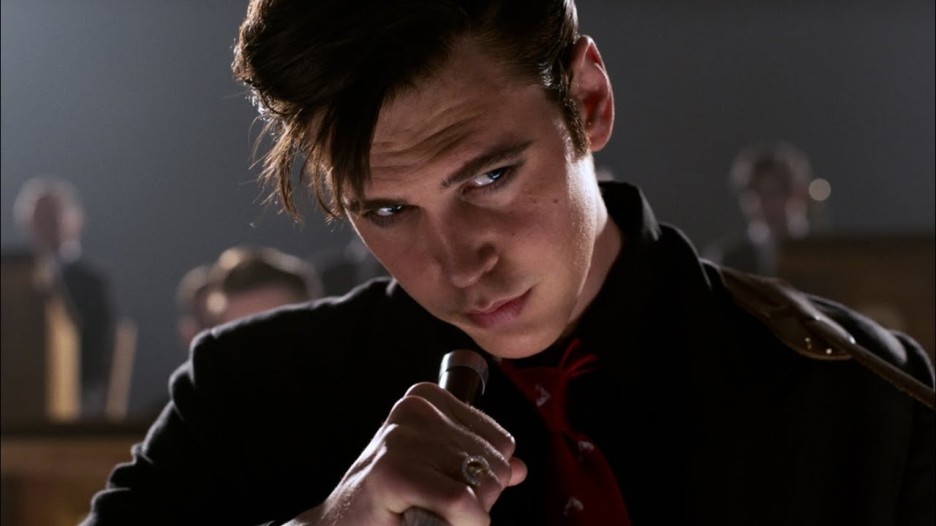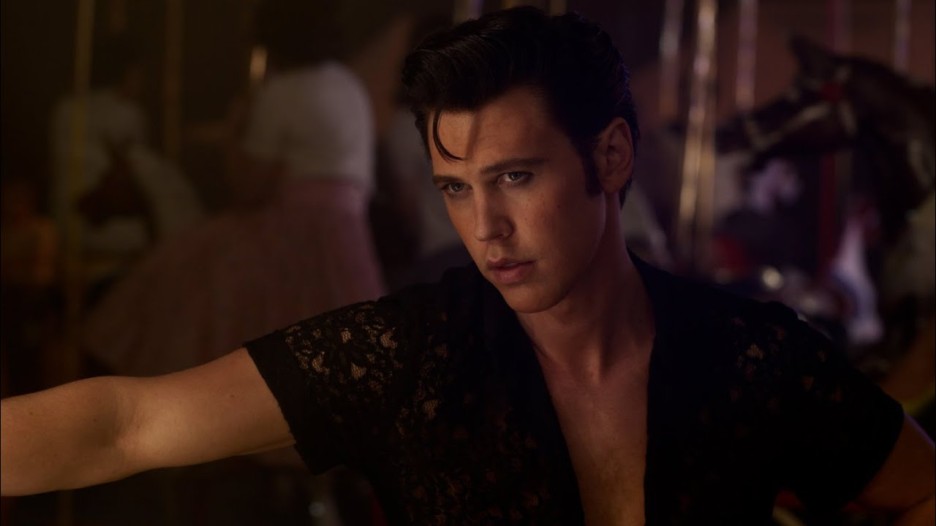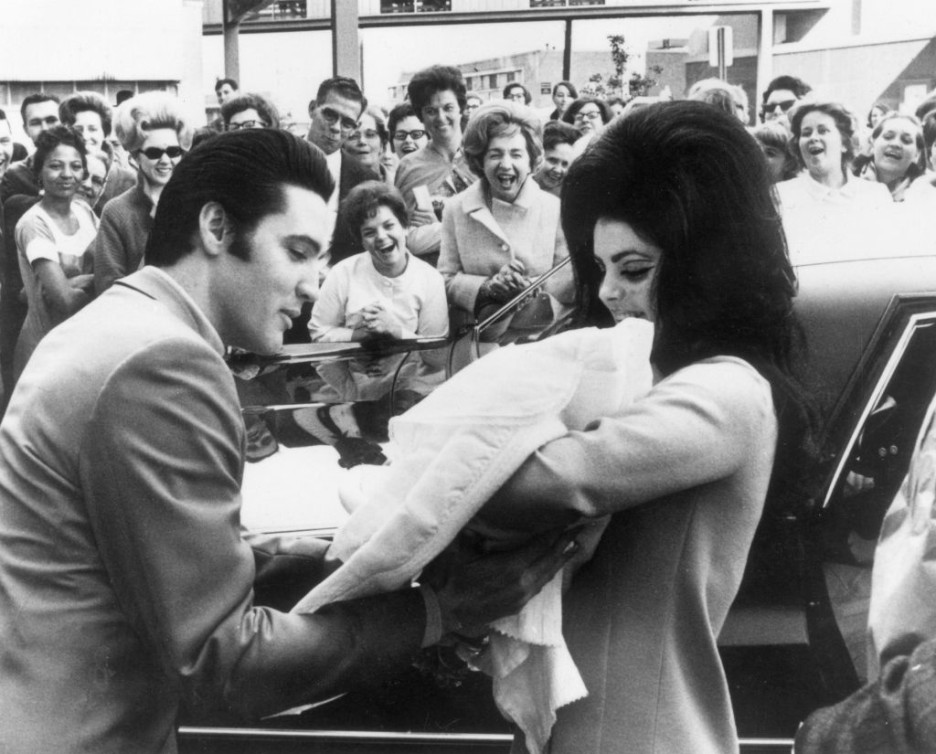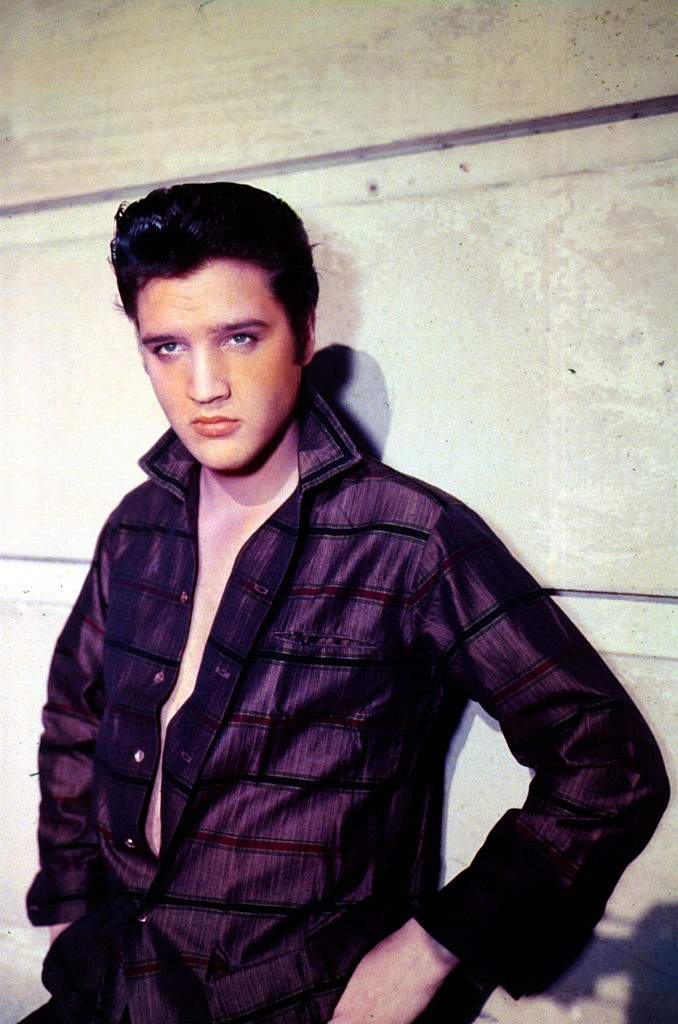'Elvis' Is A Moving And Comprehensive Biopic - But I Don't Think I Need To See It Twice
Last night, I had the privelege to see the new Baz Luhrmann biopic Elvis, about the life of Elvis Presley, at the Alamo Drafthouse in Downtown Brooklyn.

It was a moving picture, and don't let my headline mislead you - I have a lot of good things to say about it. It's just not going on the rewatch list. I'll explain why later in the article, but -
Let's talk about the good stuff first!
First of all, it does give Black people their due as the creators of the kind of fusion between rock and gospel that Elvis was so famous for. It delves right away into his backstory as a poor boy growing up on "the wrong side of the tracks," as they might have said back then - and the friends he makes there "in the ghetto" don't only feature in that part of the movie.
Several of them do stick around - and when they don't, Elvis goes back to find them. There, you can see some of the true originators of Elvis' work doing it as they would have done - "Hound Dog" sung by Ellie Mae "Big Mama" Thornton; "That's Alright" by Arthur Crudup; these were not Elvis originals, and they made sure we knew that. (Just like they made sure their friend Elvis knew that he could get away with much, much more than they ever could.)
The use of modern hip-hop and rap in the film was already garnering titters before it even came out - but I'm here to tell you they used it correctly.
To the modern ear, most of the music from this era conjures up images of grandparents and sock hops - no matter who was singing it. So to play such music as Elvis rolled into his old neighborhood would not convey the proper mood.

Rap and hip-hop, meanwhile, have specific modern connotations that people can relate to - in this case, of being played loudly through open windows in bustling, urban centers full of young people - usually people of color - the kind of place stuffier conservative-types like the Colonel would have extremely low opinion of.
As soon as Elvis rolled up, you got the feel for what was going on - the poor boy who made it big and made it out was coming home, finally feeling like he was back where he belonged - and you saw who Elvis truly was; who he would be in today's context.
Elvis was, according to this film, an ally through and through - and not the kind who just talks, but the kind who Does. This is because he's not trying to be an "Ally" - he just doesn't like to be bullied, and he doesn't like to see anyone be bullied either.
It does, unfortunately, seem to take Elvis a long time to realize he's being pushed around, but when he does, he turns around and flips a metaphorical bird without blinking an eye every time.
He's outraged by nonsensical demands and restrictions; when they tell him not to move the way that comes naturally to him, he does it even harder (and basically gets sent to Horny Jail in the form of the Army), literally jumpstarting a sexual awakening in America. When he realizes that he can help his friends out, he turns his whole Christmas special upside down, adding fuel to the blaze of the Civil Rights movement.
Elvis truly demonstrates the power that a great performer can have - and what happens when anyone tries to manipulate them to harness that power.
Superstars are not meant to exist the way Elvis did, as eternal, petrified symbols of who they were when they burst onto the scene. We've learned this time and time again, as recently as Britney Spears: That's not normal human behavior, so if you see that, it's likely that someone is pulling the strings behind the curtain.
In Elvis' case, the strings were attached to his heart. At the end of the film, Colonel Tom Parker - a role Tom Hanks disappears into entirely, very cleverly played as both the unreliable narrator and the villain - says that it was "us" who killed Elvis - that his love for the audience drove him to his death.
But that's not entirely true.
It was love - but it was love of music, and love of his family, that drove Elvis forward.
He wanted two things: To be a great performer, and to give his family everything they never had. But eventually, when it wasn't about the performing - when he was too tired and burnt out for it to be about that - it was still about his family.

First, it was his deep love for his mother, then his love for his childhood friends, then Priscilla and Lisa Marie - and even, for a long time, his love for the Colonel himself, misguided as it was.
The colonel knew that, and used it at every turn to get Elvis to do things he didn't want to do. He saw a boy who never wanted to see his family impoverished again and used that, financially abusing him until the end.
Elvis starts off bright and hopeful, even with its sinister (and, frankly, jarring) opening sequence; his early performances are a joy to watch, seeing him come into his own and excite America as "Elvis the Pelvis," watching him fight for change and fall in love - but it quickly just gets sadder and sadder, watching this sweet and trusting man be tricked into trap after trap until one of them finally kills him.
I'm caught in a trap
I can't break out
Because I love you too much baby
Elvis doesn't win in this story. He never did. He lost everything he ever cared about and was forced to perform until the day he died, and I knew that going into it. Even still, I had hoped that the end of the film would leave me with fewer rainclouds over my head.
The ending was very cool, don't get me wrong - I don't want to spoil it, but if you were concerned about the balance between Austin Butler's performances and Elvis' in this film, I think you'll be quite pleased with the final sequence.
(Speaking of Austin Butler's performance, he was incredible - a superstar in the making. I feel honored to have seen him as the Rando Boyfriend on Literally Every Disney Channel Show in my tween years.)
But it also left me feeling cold - I couldn't help but compare it to Bohemian Rhapsody, which allowed Freddie Mercury go out in a blaze of glory, despite the fact that we knew what would later become of him. Even seeing Elvis' passion in the end couldn't distract me from the fact that I was watching a the performance of an imprisoned man.
Perhaps this is simply because Elvis' story is a lot sadder than Freddie Mercury's in the ways that are immediately visible to an audience - at least he, in the end, had a partner, and his band who loved him like family. Elvis was much lonelier for much longer.

Or perhaps it was because we were at a distance from him throughout the film. It was cool and interesting, framing of the story through the eyes of the Colonel, and it and the quick cuts and changes in style were fun and evocative. Telling the story of his childhood in a comic-book style, like the comics he loved to read helped give a quick bead on who he was as a boy.
Showing the highlights of his rise to fame in newspaper clippings and short scenes that progressively got faster and faster was jarring, and felt like watching a documentary on drugs. It was probably a very good metaphor for what the rise actually felt like to Elvis - fun at first, but slowly getting faster until it makes you dizzy.
These were great devices for telling the story and making YOU feel the way Elvis did - but, unfortunately, they also took away from Elvis' time on screen.
Throughout the film, Elvis felt somewhat unreachable - I couldn't quite connect with him. Perhaps that was the point.
His granddaughter did say that this was the first attempt at a picture about her father that "got it right," so Baz Luhrmann probably did him justice - he was on top at a time when almost nobody else had ever been, one of the first global superstars of the modern era - and it's very, very lonely at the top.
Elvis is a fantastic movie, and a very thorough portrayal of the life of an incredibly sad, tortured, loving, and passionate man - one who literally gave everything he had to the people and the music that he loved.
It also made me very sad and angry for him - and that's why I don't need to see it again.






